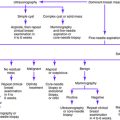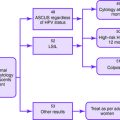Chapter 8 BREASTFEEDING PROBLEMS
Breastfeeding has numerous benefits to the child and mother. Breastfed infants have lower rates of respiratory tract infections, otitis media, allergies, necrotizing enterocolitis, and serious bacterial infections. They also have lower rates of sudden infant death syndrome, diabetes, lymphoma, leukemia, obesity, hyperlipidemia, and asthma. Children who were breastfed also perform better on cognitive development tests. Benefits to the mother include decreased postpartum bleeding, increased temporal spacing between pregnancies, weight loss, lower risk of breast and ovarian cancer, and decreased risk of osteoporosis. In addition, breastfeeding results in less employee absenteeism, lower health care costs, and lower costs to families.
Causes of Breastfeeding Problems
Alcohol consumption in moderate or large amounts
Breast surgeries, especially breast reduction
Candidal infection of the nipples
History of breast irradiation for cancer
Inadequate frequency or length of each feeding
Lack of prenatal and postpartum education
Maternal disabilities, such as rheumatoid arthritis, cerebral palsy, and carpal tunnel syndrome
Maternal illness, such as hypothyroidism, gestational ovarian theca lutein cysts, or Sheehan syndrome
Nipple pain or cracked nipples
Key Historical Features
Key Physical Findings
Suggested Work-Up
| Complete blood cell count | To detect anemia if milk supply appears low |
| Thyroid-stimulating hormone measurement | To detect hypothyroidism if milk supply appears low |
| Total and direct bilirubin measurement | If significant jaundice is present |
| Complete blood cell count | If significant jaundice is present or if sepsis or infection is suspected |
| Blood cultures | If sepsis is suspected |
| Lumbar puncture | If sepsis is suspected |
| Urinalysis and urine culture | If sepsis is suspected |
Additional Work-Up
| Pelvic ultrasonography in mother | If retained placenta is suspected |
| Testosterone measurement | If gestational ovarian theca lutein cyst is suspected (testosterone level is elevated) |
American Academy of Pediatrics. Breastfeeding and the use of human milk. Pediatrics. 2005;115:496-506.
Amir LH. Breastfeeding: managing “supply” difficulties. Austral Fam Physician. 2006;35:686-689.
Breastfeeding and Maternal Medication. Recommendations for Drugs in the Eleventh WHO Model List of Essential Drugs. Geneva: World Health Organization, 2002.
Neifert MR. Breastmilk transfer: positioning, latch-on, and screening for problems in milk transfer. Clin Obstet Gynecol. 2004;47:656-675.
Sinusas K. Initial management of breastfeeding. Am Fam Physician. 2001;64:981-988.




